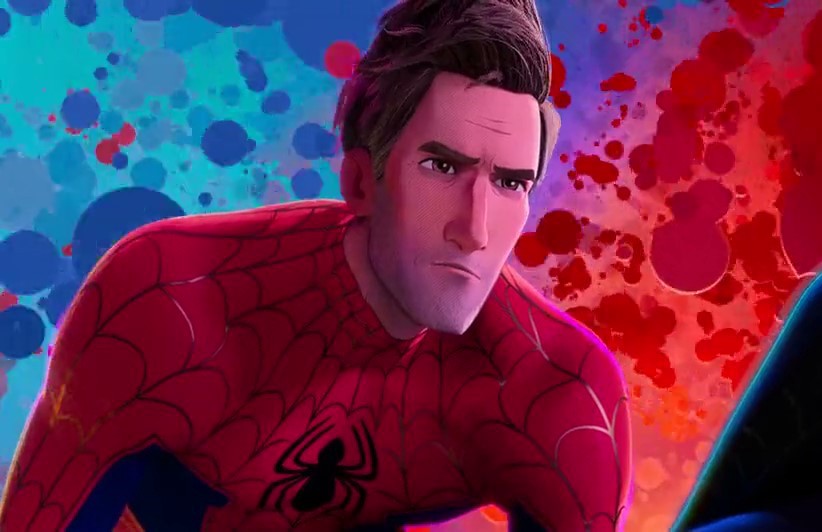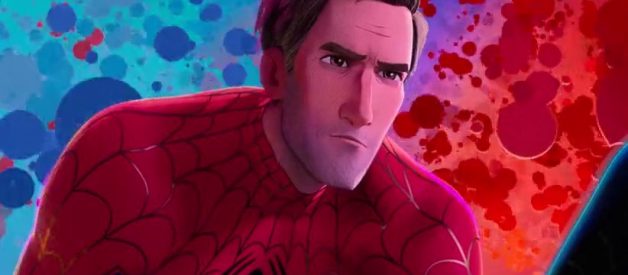 Image: Sony Pictures and Marvel
Image: Sony Pictures and Marvel
Some spoilers?duh.
Spider-Man: Into the Spider-Verse is an excellent film for a huge amount of reasons. It?s been roundly praised for its animation style and shift of focus to Latin African-American Miles Morales but not nearly enough is said about the writing and it?s handling of character.
The scriptwriters, Phil Lord and Rodney Rothman, always wanted to tell the story of Morales and introduce the sticky concept of a multiverse. The amalgamation of the Spider-Man we recognise, Peter B.Parker ? the washed up, jaded and beer-bellied mentor to Miles ? presents some interesting, new and unique problems that are dealt with fantastically.
Audience expectations
First things first, the writers are trying to move attention away from the well known Spider-Man, Peter Parker, to the lesser know Miles Morales. Not easy.
We know that Peter is usually gifted, smart, shy, nervous, guilty, honourable, so on and so forth. They?re good qualities to give a lead character. They make you want to root for them. Miles has all those qualities too, and he is the focus of the story. How do you maintain the character qualities of Peter, but change it in such a way that audiences won?t identify him as the main character? How do you give that story space to Miles?
The answer is to have Parker grow up and still not be super. By putting Peter in his mid-thirties, single, out of shape and more than a little bitter, you keep him in touch with an audience that has aged with the character.
The potential of ?I could be great if I just didn?t have to deal with homework/money/family issues? that we recognised in a young Peter is converted to ?work/money/family will always be an issue?. That is something those of us who have aged with the character have had learned.
Chances are kids who related to Spidey 20 years ago might be a little less optimistic, a bit more out of shape and not where they thought they would be when you were a teenager. I know I am.
There is a core quality to Peter Parker?s Spider-Man and it is how he is split between the mundane responsibilities of his regular world and the extraordinary ones of his superhero life. Mostly Parker is an average guy and while other older- versions of Spidey have occasionally forgotten this, it?s what keeps him compelling to an older audience as a new and younger hero picks up his mantle.
What makes characters, and particularly Spidey, interesting isn?t the idea that they could be great. Really, we?re not all that interested in characters being in a better place, we are interested in how they get there. Into the Spider-Verse recognises what it is that?s compelling about Parker in the first place, and just ages that essential aspect to A) allow room for a new lead in the spotlight and B)give a dedicated and familiar audience something that is true to them, new, but ultimately still relatable.
Character Goals
Such a simple aspect of storytelling that a lot of films and TV simply mess up. Characters should have goals. Something they want or need to do. But that has to go beyond just ?has to stop the bad guy?. There should be some emotional journey that the characters go on too. They don?t have to succeed at these goals, they just have to be there as motivations for the characters actions.
What is striking about Into the Spider-Verse, is that almost every single character has both a physical goal and an emotional one. There are a few exceptions in terms of characters who are designed to be obstacles and characters whose non-physical goal is to fulfil their 2D (pun intended) character as much as possible. Spider-Ham, for instance, is emotionally driven by the fact he is a funny animal cartoon and must fulfil that role by telling gags.
But for the principal cast, everyone has multiple motives to drive the story. Miles wants to become a superhero and reconnect with his father, Gwen wants to get home and open up to friendship, Kingpin wants to find his family and deal with the guilt of their deaths. You get the picture.
![]() If you like this article you can help me write more bu buying me a cuppa.
If you like this article you can help me write more bu buying me a cuppa.
What does Peter want?
Peter needs to get home like everybody else but his emotional goal is one of avoidance. The guy is suffering from depression. He doesn?t want to be a hero. It?s a classic reluctant hero role but made more interesting by the fact it isn?t to be cool or to hold back some dangerous aspect of his personality. He just can?t carry on.
He is a guy who has just given up and can?t go back to who he was. He has given up on his responsibilities and even chides Miles when he is about to use that quote. His drive is the antithesis to the drive we know Spider-Man has. That tells us how he is going to act and lets the audience know where he needs to get to emotionally. And boy does he have a journey.
It might be the first depiction of a borderline suicidal Spider-man.
Let me explain.
In the final act at the big battle, Miles starts to show that he is Spider-Man and truly up to the job. The other Spider-Men start to head back to their dimensions but Peter B. Parker tries to stay. It results in the beautiful scene, mirroring one from earlier in the film, of Miles as Spidey holding onto Peter by his costume as Peter admits that he doesn?t want to go back because he doesn?t know how to deal with his failures (in the earlier scene, it?s Peter holding onto Miles telling him he isn?t ready to be Spider-Man).
But Peter knows that by staying he will die. Again it?s a classic hero?s sacrifice, but one that doesn?t need to be made, by a character riddled with depression. It?s not said but the subtext is that Peter B. Parker is happy to stay in Miles? dimension and die than head back to his own life.
It?s a pretty amazing place to take a character like Spider-Man and it isn?t overplayed or insensitive. Like Parker, it?s a reworking of elements we are familiar with as audiences that play together to create a character. That character creates a story and the characters react to the story.
And that is brilliant.

![LifeAfter MOD APK v1.0.145 [Unlimited Gold, Diamonds Lives & Ammo]](https://911weknow.com/wp-content/themes/mts_myblog/images/nothumb-myblog-related.png)
